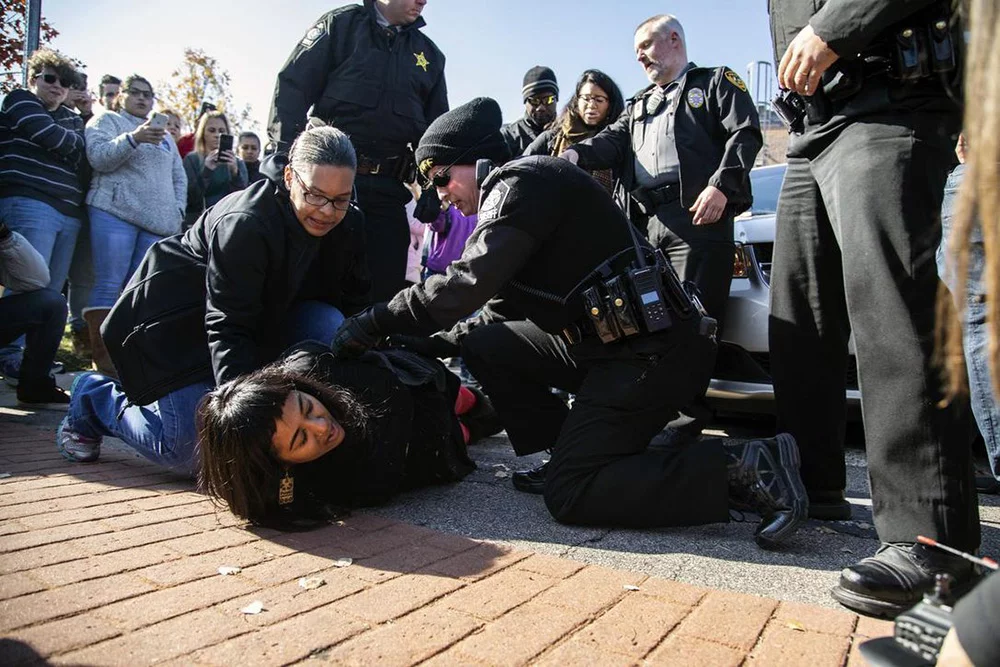Facing down ICE in North Carolina
When agents came for Samuel Oliver-Bruno, 27 of his church friends stood in their way.

On November 23, Samuel Oliver-Bruno left CityWell United Methodist Church in Durham, North Carolina, for the first time since taking sanctuary there in December 2017. The Duke Divinity student and longtime U.S. resident, who returned to Mexico in 2011 to care for his father and came back to the United States in 2014 when his wife needed heart surgery, had requested a reprieve from his deportation order. As part of a review of that request, U.S. Citizenship and Immigration Services summoned him to its office for fingerprinting.
The summons was a trap. While standing in line at USCIS, Oliver-Bruno and his son, a U.S. citizen, were tackled by plainclothes Immigration and Customs Enforcement agents, who took Oliver-Bruno to an unmarked van out back.
There ICE had to contend with his church family. The van was surrounded by CityWell members, local pastors, and other supporters. They prayed, sang, and refused to move. Only after 27 more arrests could the van pull out.
Patheos blogger Fred Clark compared the incident to another in 1858, when a federal marshal used the promise of a job to lure escaped slave John Price to the outskirts of Oberlin, Ohio. Price was seized and taken to a hotel in preparation for returning him to a Kentucky slave owner.
Read our latest issue or browse back issues.
A crowd from Oberlin soon showed up to demand Price’s release. The black abolitionist Charles Langston tried to calm the others before going inside to negotiate. When negotiations proved fruitless, the crowd rushed in. A seminarian led Price outside, where he was taken back to Oberlin and eventually to Canada. Thirty-seven of Price’s rescuers were arrested and indicted. According to the Fugitive Slave Act, they were lawbreakers.
At the time, many Americans expressed sympathy for abolitionists’ goals but chided them when they broke the law. That same line is often used today against undocumented immigrants and their supporters—even by people who themselves admire the 19th-century abolitionists. When it comes to past conflicts, everyone seems to be retroactively on the side of justice. But what about the injustices of our day, when federal agents go out of their way to break up families and deport people who pose no threat?
The Christians who tried to save Oliver-Bruno from ICE didn’t have the law on their side. They answered to a higher law—and at considerable personal risk. They spontaneously faced down officers of an aggressive, largely unaccountable agency, putting their bodies on the line for a person they love and a cause they believe in.
Sadly, they didn’t succeed. Oliver-Bruno was deported on November 29. There are others facing similar situations, and the use of USCIS appointments as a trap has become a common ICE tactic. Lars Åkerson, whose pastor Isaac Villegas was among those arrested November 23, has created a messaging system for sanctuary leaders to quickly mobilize supporters “to show up, document the situation, and, if necessary, put their bodies between these courageous people and whatever harm might come to them.” No doubt there will be many more opportunities.
A version of this article appears in the print edition under the title “Bodies on the line.”






